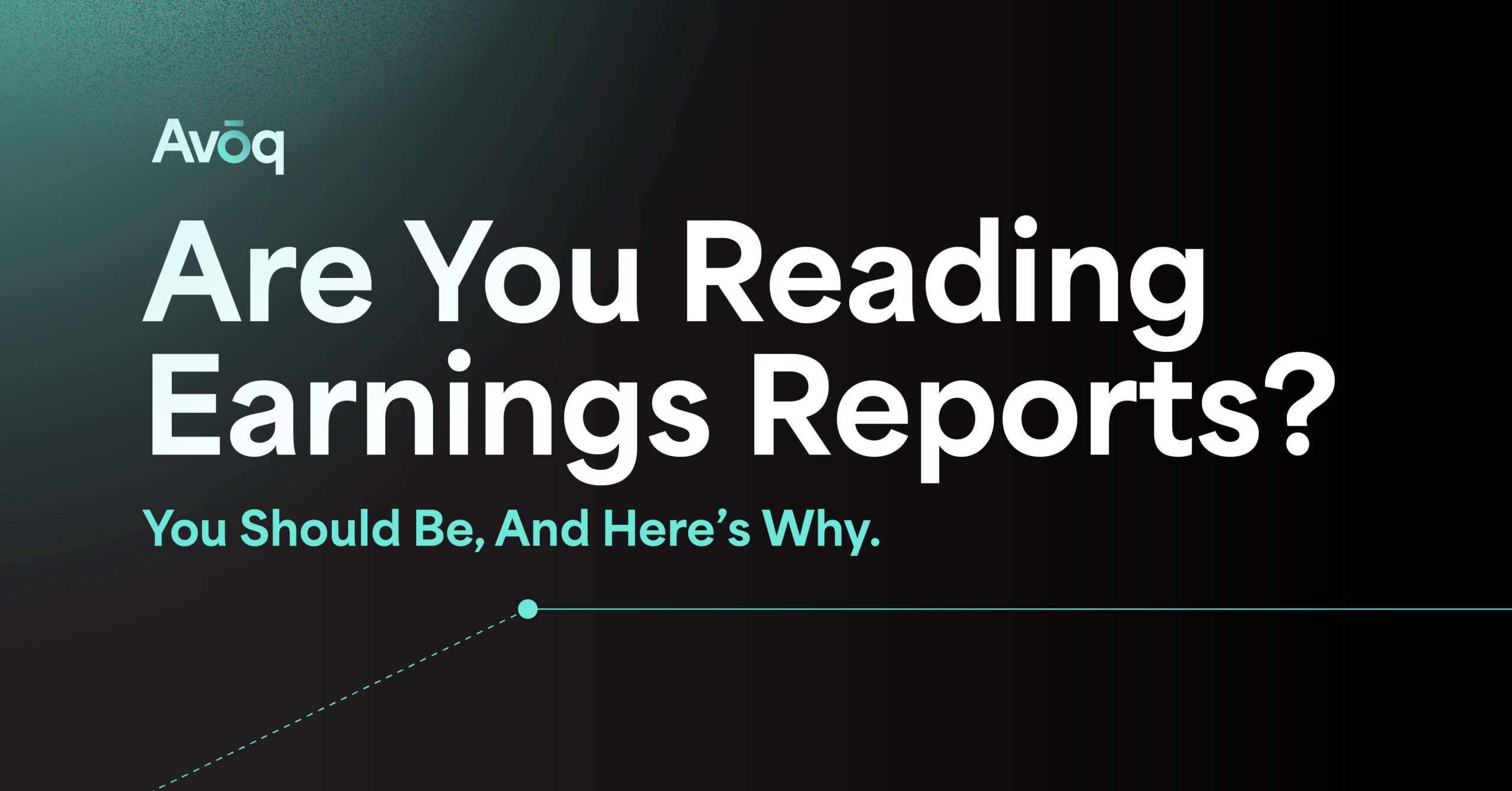By Avoq’s Government Relations Team
As public policy experts, we’re often asked what tools we use to help inform our strategic approach to client work. One underrated source that we analyze at Avoq is corporate earnings reports. These reports aren’t just for Wall Street. They’re a window into how political and policy agendas influence financial markets. Here’s how and why it matters for anyone working in and around public affairs or government relations:
1. Earnings Tell a Policy Story
Earnings reports reflect the real-world outcomes of political and policy decisions. When companies report revenue, profit margins, and guidance, those numbers embody the downstream effects of:
- Tax policy changes (e.g., corporate tax rate adjustments)
- Trade policy and tariffs (affecting costs and exports)
- Regulatory shifts (especially in finance, energy and healthcare)
- Government spending priorities (infrastructure, defense or technology)
2. Some Sectors React Faster Than Others
Certain sectors are particularly sensitive to government policy:
- Energy: Environmental regulations or subsidies for renewables can swing profitability.
- Healthcare: Policy debates on drug pricing or insurance coverage directly affect revenue models.
- Defense: Government budgets and geopolitical tensions influence contract volumes.
- Finance: Monetary and fiscal policy changes affect credit demand and interest margins.
By analyzing earnings calls and forward guidance, investors can detect which sectors policymakers are favoring or constraining.
3. Markets React to More Than Just Numbers
Markets often move not only on the numbers in earnings reports, but also on the narratives that accompany them:
- Phrases like “regulatory uncertainty,” “interest rate headwinds,” or “election-year policy risk” often signal whether corporate leaders perceive government actions as creating risk or opportunity.
- Analysts often use textual analysis on earnings call transcripts to gauge sentiment shifts connected to political events — for example, changes in optimism following elections or new legislation.
4. Policy Trends Help Inform Earnings, but Earnings Reflect Policy Trends
When aggregated, corporate earnings can:
- Reveal how policy changes are transmitted through the economy (e.g., stimulus packages boosting consumer spending).
- Offer an early read on economic resilience or weakness in response to new laws or budget decisions.
In short, earnings reflect the impact of past policy, but they also point to where political pressure may build next. (Think: hearings, oversight or models for future policy design, such as targeted relief).
Avoq Strategic Takeaways
- Earnings = real-time impact: They reveal the real-world economic consequences of political rhetoric and legislative decisions.
- Policy context sets the stage: Earnings can’t be interpreted in a vacuum. Understanding which policies are in play helps identify which sectors will feel the effects first.
- Not all earnings are equally revealing: We pay particular attention to policy-sensitive sectors — energy, finance, healthcare, defense and consumer staples — where government decisions directly influence performance.
- Policy impacts are uneven: Winners and losers emerge across industries — this is useful for understanding the policy landscape going forward.
- Markets react to policy certainty: Even neutral policy changes can lift markets if they reduce uncertainty.
- Earnings both reflect and predict policy trends: They often provide the first quantitative evidence of how policy shifts ripple through the economy — and where the policy debate might move next.
Our Strategic Strength: We Combine Micro & Macro
The most powerful insights come from blending deep policy expertise with ongoing analysis of earnings data and economic indicators. That’s how we help clients spot what’s coming next, not just what has already happened. Click here to get in touch.




